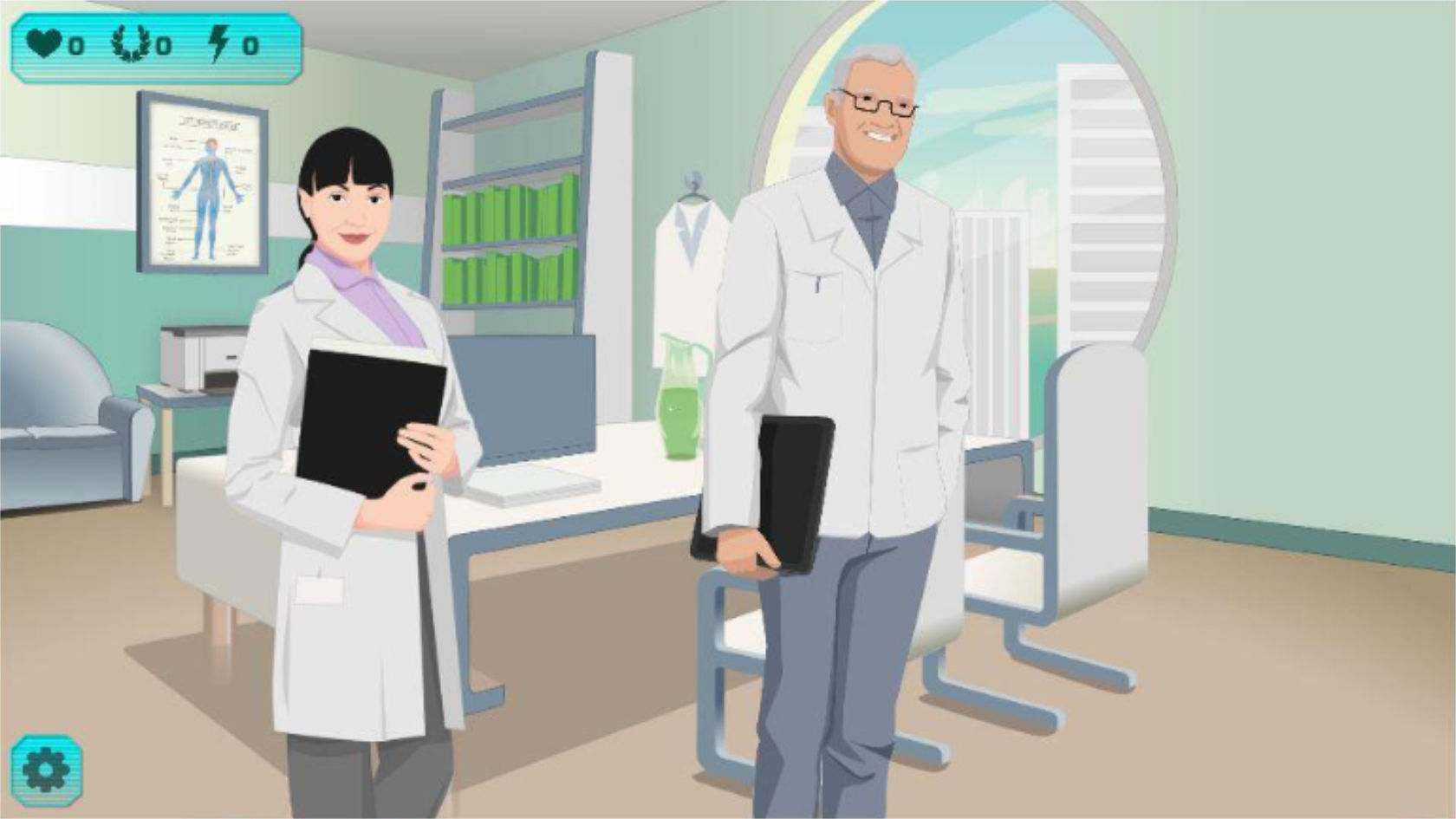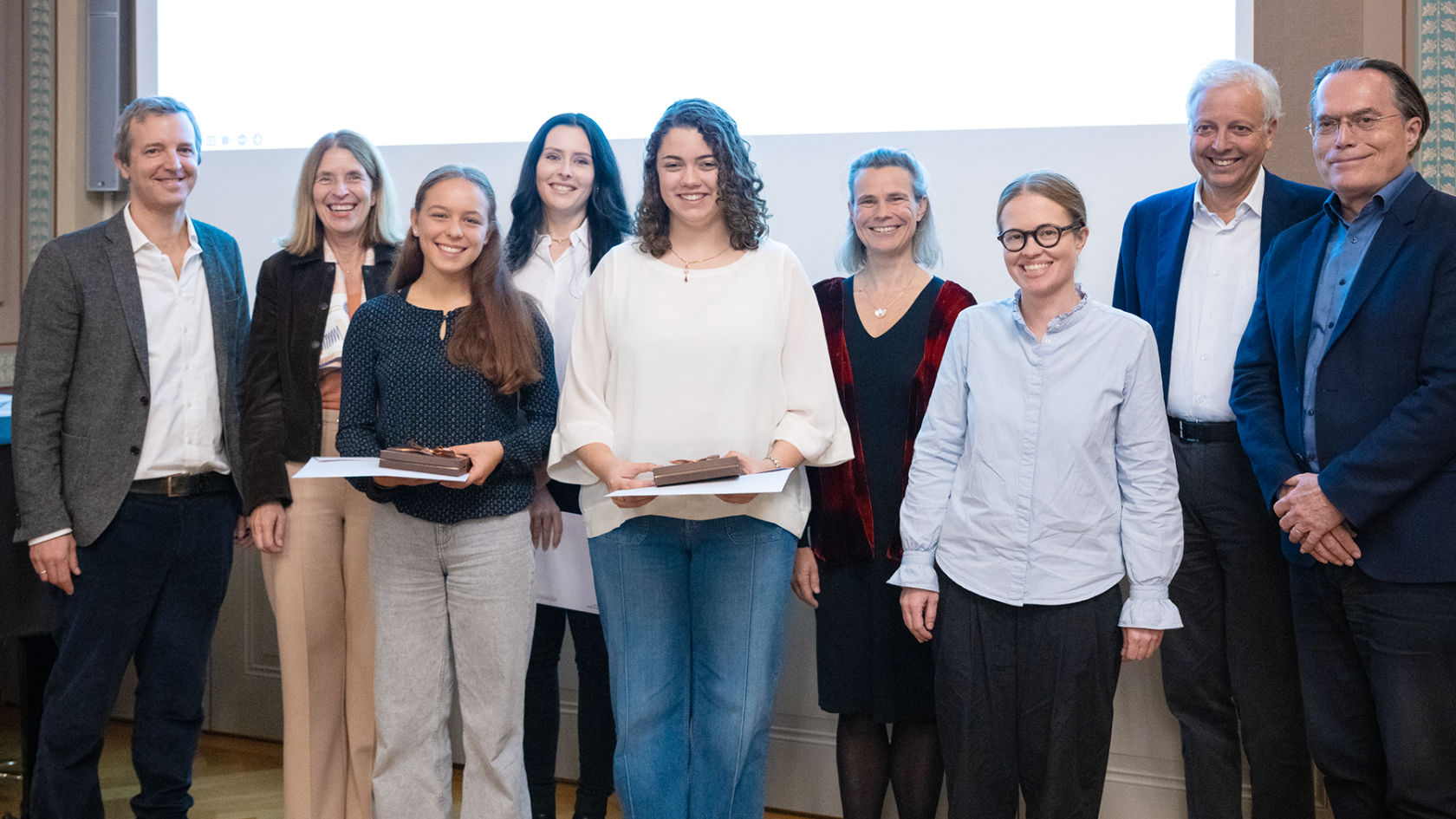Embedding Ethics in the Medical Mainstream

In their very first semester, medical students at the University of Zurich (UZH) learn that medicine and ethics are closely intertwined. As part of an introductory course on ethics in medicine, they reflect on personal experiences they have had within the healthcare system – as patients, as family members, friends, or as hospital attendants and interns. They discuss moral dilemmas and develop their ability to articulate arguments in situations where clear-cut answers are seldom available.
“Mainstreaming ethics” is what Nikola Biller-Andorno calls the driving idea behind this approach: “I tell all first-semester students that ethics is embedded in everything they will do in their future work. In their clinical practice, they will repeatedly be required to think critically – often in hierarchical settings and under time pressure.”
Digital toolbox for ethical analysis
When Biller-Andorno took up the newly created professorship at the Faculty of Medicine in 2005 and shortly afterward became the founding director of the Institute of Biomedical Ethics and History of Medicine (IBME), problem-based learning was at the center of attention. In small groups of nine to ten students, aspiring medical professionals were to independently explore the key concepts of ethics. “The student–teacher ratio was a real luxury, and everyone got to take part in the discussion,” she recalls. “But at some point, we realized that it’s hard to have good discussions when the basic knowledge is lacking.”
The IBME team then developed a digital toolbox for ethical analysis, designed to help students get started with ethical reflection. “We wanted them to define terms precisely, reflect on their own perspectives, and learn to distinguish between factual information and moral judgments in case reports,” Biller-Andorno explains.
Essays instead of multiple choice
The toolbox itself is now also being updated. In light of current challenges such as fake news, filter bubbles and echo chambers, the focus will increasingly be on analyzing arguments and testing them through discourse. “Much like in anatomy, we help students recognize and organize structures – only in our case, they’re arguments rather than vessels or nerves,” says Biller-Andorno. The goal, she adds, is also to learn how to reach consensus or at least mutual understanding in discussions where there is no agreement – a key skill in an increasingly polarized society.
Much like in anatomy, we help students recognize and organize structures – only in our case, they’re arguments rather than vessels or nerves,
One surprising element of the course is essay writing. Instead of the usual multiple-choice tests common in medical studies, first-year students write a literary reflection on a situation they have personally experienced – not as medical professionals, but as individuals affected by it. “This change of perspective is crucial to understanding how deeply medical decisions can resonate with patients and their families, sometimes for years,” says Biller-Andorno. To highlight the value of these essays, the best works are recognized with an award.
2025 Premio Pusterla
Winners and jury members at the Premio Pusterla award ceremony (left to right): Tobias Eichinger (IBME), Beatrice Beck Schimmer (Vice President Medicine at UMZ), Aileen Löblein (3rd place), Mara Nöthiger (2nd place), Sophia Borges (1st place), Nikola Biller-Andorno, Anna Elsner (professor of French cultural studies and medical humanities at the University of St. Gallen), Christoph Meier (Director of the Department of Internal Medicine at the University Hospital Zurich) and Paul Hoff (psychiatrist and philosopher). (Image: UZH/Frank Brüderli)
Since 2018, the Center for Medical Humanities at the IBME has awarded the Premio Pusterla (website in German) essay prize to first-year medical students. The award honors the best essay that addresses ethical problems and conflict situations in medical practice or clinical settings in a compelling literary form. At a public award ceremony, the three finalists are recognized, and the winning essay is read aloud.
- This year, Sophia Borges impressed the jury with her moving text«Zwischen Hoffnung und Herzschlag» (PDF, 52 KB) (between hope and heartbeat), in which she puts herself in the shoes of her parents, who were advised to terminate the pregnancy of the baby who would later go on to study medicine.
- Second place went to Mara Nöthiger for «Endstation» (PDF, 118 KB) (final stop), in which she reflects on the interaction between a patient with dementia and his grandson.
- The third prize was awarded to Aileen Löblein for «Keine Zeit für Menschlichkeit» (PDF, 82 KB) (no time for humanity), which explores the moral distress experienced by healthcare professionals working under pressures to work more efficiently.
The winners of the Digital Media Award, flanked by Tobias Eichinger and Nikola Biller-Andorno: First place went to Fabian Noel Egli (third from right). (Image: UZH/Frank Brüderli)
In 2025, for the first time – in response to the rapid development of generative artificial intelligence – a Digital Media Award was introduced, open to medical students from across Switzerland. The prize honored images and short videos addressing medical-ethical questions. Fabian Noel Egli (UZH/University of St. Gallen) won with his contribution Between Time and Living, in which he criticizes a purely technology-driven approach and advocates for medical decision-making that takes into account values, human relationships and the alleviation of suffering.
Making ethics tangible

The IBME also uses creative teaching formats in other modules. Supported by the UZH Teaching Fund (ULF), several innovative projects have been realized – for example, the graphic novel The Outbreak, which stages ethical dilemmas during pandemic times, or the digital learning game uMed: Your Choice. In this dialogue-based simulation, students take on the role of a resident physician who must make decisions that rarely have a clear right or wrong. “You collect points for integrity or efficiency – and at the end, you even evaluate the institution: is this a place where I’d want to work?” says Biller-Andorno. This allows students to explore alternative courses of action in complex situations and experience how deeply ethics is interwoven with the reality of clinical practice.
With rising student numbers and shorter hospital stays, we need new ways to teach realistically.
Another project builds on dipex.ch, a platform hosted by the IBME that makes patient narratives accessible. The range of topics spans dementia, COVID-19, chronic pain, mental health, pregnancy and prenatal diagnostics. Using these reports, artificial intelligence (AI) is being trained to create virtual patients that can be used for communication training exercises such as shared decision-making. “AI can’t replace bedside teaching with real patients,” emphasizes Biller-Andorno, “but with rising student numbers and shorter hospital stays, we need new ways to teach realistically.”
Timely questions for the future
As part of the medical degree program’s elective modules, the institute also offers courses such as The Future of Medicine and Ethics and Law in Medicine. These explore topics like AI, personalized medicine and environmental ethics – issues that will increasingly shape the healthcare system in the years ahead. The modules are often co-taught with specialists from fields such as genetics and transplant medicine.
Around 50 teaching staff are involved – ranging from experienced clinicians to early-career researchers. For Biller-Andorno, it is essential that students merge theory with practice early on. “Ethics shouldn’t remain confined to the seminar room,” she stresses. “It should help students navigate real-life clinical situations.”
Innovative teaching is a matter close to her heart: “I want to make it easy for students to feel the enthusiasm for the subject that I feel myself,” she says. “If, in the end, they understand that ethics isn’t an add-on but part of every sound medical decision, then we’ve achieved our goal.”

